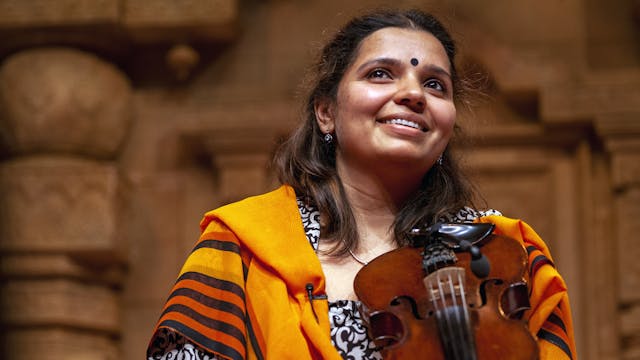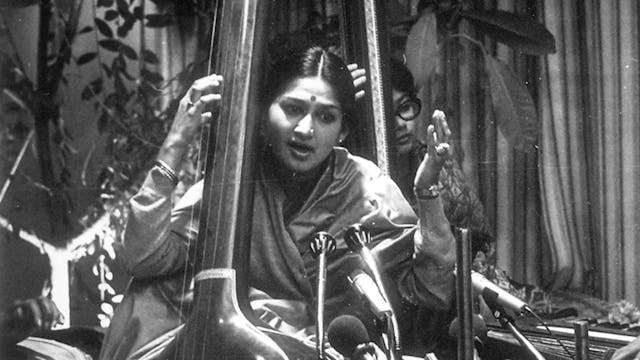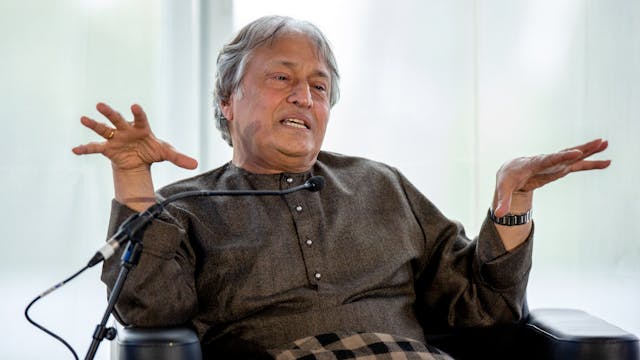Abhisek Lahiri | Sarod Talk
Interviews
•
11m
Recorded at Darbar Festival 2015, at the Southbank Centre, London.
Musician:
- Abhisek Lahiri (sarod)
Raag Bhimpalasi; Thaat: Kafi; Samay: Afternoon
Strumming up a melodious alap on Raag Bhimpalasi, sarod player Abhisek Lahiri talks to Darbar about his childhood, his musical values and why he does cross-over work. He is a gharana-blending musician who fuses the three major traditions of sarod -the Rampur Shahjahanpur, the Maihar, and the Senia Bangash gharanas. Lahiri was born in a household surrounded by music. Early training began under his father Pandit Alok Lahiri, also an eminent musician based in Kolkata, India. Lahiri was handed a baby sarod at the age of five after which, he started playing the instrument. Lahiri belongs to a family rooted in traditions and yet maintains a liberal outlook towards music. He believes ‘gharana’ is an identity and emulating other styles, a step towards quality musicianship.This interview is a revelation of all the other talents that this young musician possesses and yet remains rooted to traditions as a manner of fulfilling his responsibilities towards the art form.Interspersed with a stunning alap, jor and jhalla, this short and sweet tete-a-tete offers an insight into what shapes Lahiri’s mind and choices as a musician.
Up Next in Interviews
-
Kala Ramnath | Interview
Kala Ramnath interview from Darbar Festival 2006
- Kala Ramnath (Carnatic Violin)
- Dharambir Dhadyalla MBE (host) -
Shubha Mudgal | Interview
Shubha Mudgal (Gwalior gharana)
“My gurus...were all liberal thinkers and avid collectors of knowledge. They believed in learning from as many sources as possible and I think it is their eclecticism that influenced me as well as their other students.” (Shubha Mudgal)
Shubha Mudgal sings a disti...
-
Ustad Amjad Ali Khan | Interview
Recorded at Darbar Festival 2016
India's foremost sarod maestro candidly talks about his passion and the unique lineage he was born into. Khan explains that there is no book about presentation of Indian classical music and how a 3 minute Raga was about quality and duration of music.



